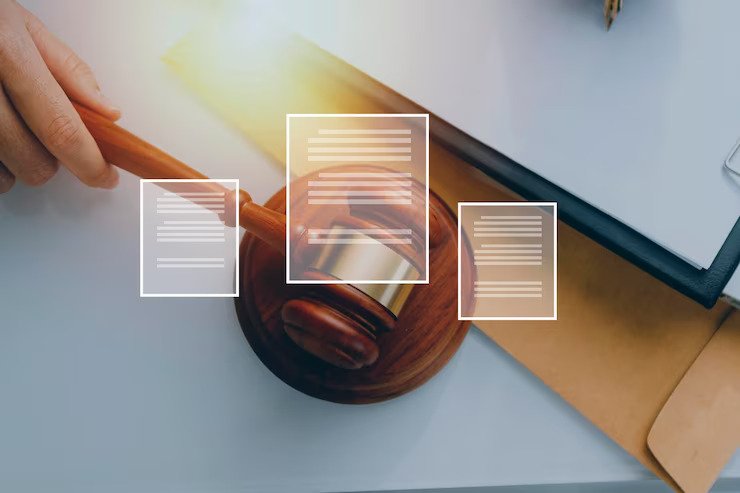
A lot of people often question the necessity of a legal document translation. Let me give you a small example!
For instance, imagine transacting a multimillion-dollar trade across international boundaries when a miscommunication arises due to poorly translated legal paperwork. What are the possible repercussions? Costly legal disputes, harm to one’s reputation, and strained commercial ties.
Legal document translation becomes more than simply a formality; it becomes essential. Accurate translation is a preventative measure to avert every problem by ensuring that every phrase, clause, and provision becomes evident to all parties concerned.
Legal Document Translation: How Can It Help?
Legal problems now cross continents in our interconnected world. Yet, language barriers pose a challenge.
Solving this is vital. Why? International legal misunderstandings can lead to financial losses and reputation harm.
Additionally, overcoming language barriers ensures everyone understands their rights, obligations, and the nuances of the issues, regardless of their language backgrounds.
It is crucial to understand domestic and foreign laws in international business. Each country has an intricate legal system.
Accurate translated legal materials can assist professionals in navigating this complexity by providing insights into unfamiliar territories.
Moreover, the stakes in legal translations are high, so we asked Ofer Tirosh, CEO of Tomedes, a translation company specializing in legal document translation for businesses and law firms worldwide, to discuss his thoughts on how accurate and valid legal translation documents can prevent disputes.
He stated, “A single oversight or misinterpretation leads to significant consequences. Hence, the onus lies in ensuring that legal documents translated reflect the same accuracy and validity as the original, leaving no room for ambiguity.”
Here are some reasons why it is important and how it can help:
Ensures Accuracy
First, legal documents often contain complex terminology and specific legal language. Accurate translation ensures the meaning is preserved, preventing misunderstandings that could lead to legal issues.
Facilitates Compliance
Secondly, different countries have different legal requirements. Translating legal documents helps businesses comply with local laws and regulations, avoiding potential legal penalties.
Enhances Communication
Thirdly, clear communication is vital in legal matters. Translated documents ensure all parties understand the terms and conditions, fostering better relationships and smoother transactions.
Protects Rights
Legal translation protects the rights of individuals and businesses by ensuring that contracts, agreements, and other legal documents are understood correctly. Besides this is especially important in international trade, immigration, and cross-border disputes.
Supports Global Expansion
For businesses looking to expand globally, translating legal documents is essential. It helps understand and adhere to the legal frameworks of new markets, facilitating smoother entry and operations.
Maintains Confidentiality
Professional legal translation services prioritize confidentiality, ensuring that sensitive information is protected throughout the translation process.
Saves Time and Money
Accurate legal translations can prevent costly legal disputes and delays. Businesses can avoid misunderstandings and legal complications by ensuring that all legal documents are correctly translated.
Types of Legal Documents That Require Translation
You might be asking which translations require such careful handling. Numerous documents do, ranging from corporate contracts to personal legal matters. Errors in these critical documents can lead to significant consequences.
Contracts
Contracts are the foundation of business agreements, detailing each party’s responsibilities and rights. A mistranslated contract can jeopardize the entire arrangement. Therefore, clear and accurate translation is essential for mutual understanding.
Patents and Intellectual Property Documents
Protecting one’s intellectual assets in international markets means understanding and adhering to various patent laws. Moreover, accurate translation ensures that inventors and companies retain their rights and prevent inadvertent infringements.
Litigation Documents
In the unfortunate event of a legal battle across borders, litigation documents become the evidence and defense. Additionally, a misinterpreted statement or evidence due to translation errors could sway the outcome of a case. Hence, these documents demand precision in translation.
Regulatory Documents
Operating in overseas markets necessitates adherence to local laws. Businesses need to thoroughly understand these rules. By accurately translating regulatory paperwork, firms may operate within the law and avoid penalties or closures.
Wills and Trusts
Personal legal documents like wills and trusts ensure that an individual’s final wishes are respected and carried out. Inaccuracies in translation can lead to disputes among beneficiaries, defeating the very purpose of these documents.
Understanding the Certified Translation Process
So, how does one guarantee this level of precision? Enter certified translation. This process involves translating a document and providing a signed certificate of accuracy. Moreover, the translator, often a seasoned professional, attests to the authenticity and correctness of the translation, lending it credibility.
The Expertise of Legal and Language Professionals
The language in legal papers is intricate, and numerous terms don’t have translations in other languages. Furthermore, legal expertise and linguistic skills ensure that translations maintain the source document’s legal validity while conveying information.
Benefits of Certified Translation in Dispute Prevention
Businesses and people may protect themselves from misunderstandings by investing in certified translation. Additionally, accurate translations remove ambiguities, establish clear expectations, and stop misinterpretations before they become disagreements.
Best Practices for Efficient Legal Document Translation
Efficient legal document translation requires following established procedures. Additionally, these steps involve selecting experienced translators familiar with the suitable legal field, maintaining open communication for clarifications, and enforcing rigorous quality control and proofreading.
Besides, efficiency doesn’t sacrifice accuracy; it streamlines the translation process and enhances precision.
Translating Legal Nuances
Firstly, legal documents often contain nuances that hold significant legal implications. These nuances can range from specific word choices to culturally influenced interpretations.
A skilled legal translator is more than a linguist. Additionally, they are legal experts who can translate legal documents accurately because they understand the nuances of both languages and the legal context.
Legal Terminology Consistency
Secondly, maintaining consistent legal terminology is vital in translation. Clear definitions in legal terms and uniformity across documents ensure coherence and understanding.
Furthermore, diverging from accepted legal standards can lead to confusion and disputes. Consistent vocabulary accurately conveys legal concepts, minimizing the risk of misunderstandings.
Tools for Enhanced Efficiency
Thirdly, modern technology enables accurate translation of legal documents through various tools. Computer-assisted translation (CAT) systems suggest past translations for common phrases, ensuring consistency.
Furthermore, while human expertise remains crucial for precise legal translations, machine translation engines provide a helpful starting point.
Moreover, when used judiciously, these methods enhance translation efficiency without compromising quality.
Ensuring Quality and Accuracy
Finally, quality and accuracy stand at the forefront of successful legal document translation. While speed is essential, it should never come at the cost of precision. Besides, ensuring quality involves multiple layers of review, proofreading, and adherence to legal standards.
Furthermore, accuracy is the linchpin that holds together the translated document’s integrity, making it a cornerstone of effective dispute prevention.
Common Questions About Preventing Disputes
Legal document translation is great. However, what about the other things related to dispute resolution? Here are some questions that people frequently ask about resolving and preventing disputes:
How Do You Prevent Disputes?
Open communication with consumers is one of the easiest ways to prevent disputes and reduce the likelihood of problems. Additionally, be transparent about your pricing, shipping, and delivery policies so your customers can make informed decisions.
What Is The Key To Avoiding Business Disputes?
Any successful relationship, especially those in business, depends on effective communication. Keep the lines of communication open and unhindered; ensure the other person and you are constantly on the same page. Furthermore, avoid letting issues fester before solving them. Moreover, if you notice a possible problem, act quickly to fix it.
What Is The Most Common Way Disputes Are Handled?
The most common way to resolve disputes is by discussion, mediation, arbitration, or other ADR methods. Furthermore, in mediation, an impartial mediator supports the parties’ attempts to negotiate a solution but lacks the authority to make final decisions.
Empowering Legal Professionals Globally
Legal document translation is vital for accuracy, compliance, communication, rights protection, global expansion, confidentiality, and cost savings. It ensures that legal documents are understood and respected across languages and legal systems.
Effective communication across legal boundaries is vital in our increasingly global society. Accurately translated legal documents empower legal practitioners to confidently engage in worldwide business.
These translations are pivotal for fostering successful cross-border partnerships by preventing misunderstandings.
Read Also:











0 Reply
No comments yet.